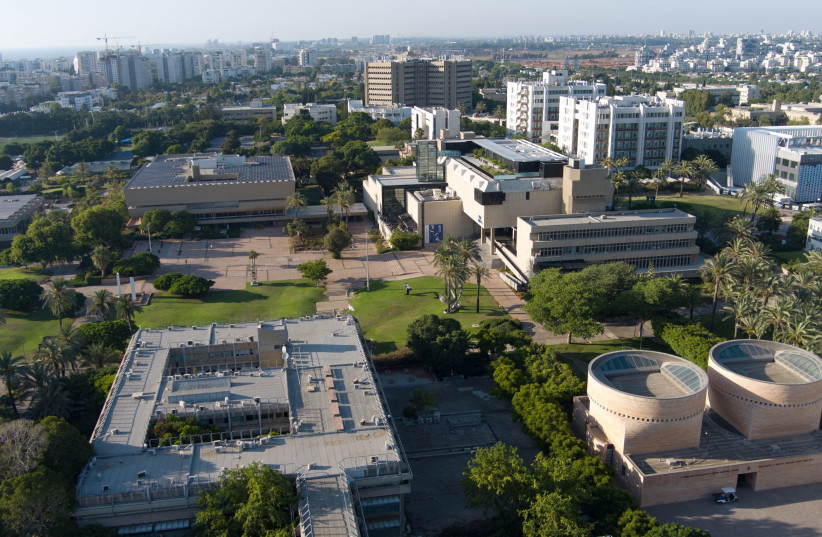Despite the number of Israeli Arab tech students more than doubling in the past seven years, they made up only 1.8% of the country’s flourishing high-tech ecosystem in 2021, new research has shown.
The preliminary research – titled “The High-tech Entrepreneurial Ecosystem in the Arab Society” – was written by the Start-Up Nation Policy Institute (SNPI) in collaboration with the Israel Innovation Authority and Hasoub, a nongovernmental organization dedicated to promoting Arab tech entrepreneurs. It presents early results from ongoing research that is slated to be published in full in the coming months.
According to the early report, since 2018 there has been very little growth in Arab employment in the Israeli tech sector overall. In fact, while the share of Arab employees in high-tech reached 2.2% in 2018, it declined to 1.8% in 2021 and only 0.8% of tech CEOs are Arab.
Arabs comprised 21.1% of Israel’s population as of 2020, according to the Israel Democracy Institute, with a small majority (51.6%) residing in northern parts of the country.

Why are there so few Arabs in Israel's tech sector?
Assaf Patir, the chief economist of SNPI who led the report, told The Media Line that the institute could not yet ascertain precisely why the number of Arabs entering the tech sector was so low.
“One possibility is that there is a barrier for these students entering the Israeli ecosystem, it may have to do with discrimination or just geography,” Patir said. “We do think that the big bottleneck in terms of bringing more Arabs into high-tech is in primary and secondary level education. Only 15% of students who take Israel’s [highest-level math matriculations] are Arab. They are almost 30% of the high school student age group but only 15% of [those matriculations].”
Overall, the report stated, the number of workers in high-tech has grown at an annual rate of 6.7% but only 0.5% for Arab employees.
This is even though the number of Arab students in tech-related degrees has more than doubled in the past seven years compared with a 35% increase in the general population. Roughly 80% of Arab students in the tech sphere are studying computer science and electrical engineering.
SNPI CEO Uri Gabai believes that geographical and cultural barriers are the primary factors preventing a greater number of Arabs from entering the tech ecosystem.
“Most of Israel’s high-tech is concentrated in the Tel Aviv area,” Gabai told The Media Line. “If you can’t rent an apartment there then you’re traveling all the way from Haifa or Nazareth to Tel Aviv, which is quite impossible with the traffic.
“I don’t think there is a widespread phenomenon of high-tech companies discriminating against Arabs, but I think there are cultural and geographical barriers in Israeli society which still pose a lot of difficulties for Arabs to integrate into high-tech companies in the center,” he continued. “They are competing with Israelis that live in the center, who are much more connected and have an easier [time] networking.”
The report also focuses on Arab tech entrepreneurship and indicates that it too has developed very slowly. Roughly 100 startups were founded by Arab tech entrepreneurs in the past decade, with nearly half located in Arab cities. In other words, only 10 new companies are established on average in Arab society on a yearly basis.
The northern Israeli Arab city of Nazareth has emerged as the capital of high-tech entrepreneurship for the community, with roughly 40% of new Arab-led tech startups being founded there within the last decade. Nazareth was followed by Haifa (20%), Tel Aviv-Yaffo (9%), and Jerusalem (8%).
“We do see some Arab entrepreneurship, but the numbers are still very, very small,” Patir affirmed. “In terms of gender composition, women are under-represented in these companies but they’re equality underrepresented in high-tech in general.”
Israeli attempts to boost Arab participation
The Israeli government has launched several attempts to boost Arab tech workforce participation. Earlier this year, the Innovation Authority announced a $70 million program aimed at promoting entrepreneurship in the community and encouraging the integration of the Arab population into the country’s booming high-tech sector.
The program includes operational grants for entrepreneurship centers, mentoring programs, and accelerators, as well as the planned establishment of a technology incubator that will work with budding entrepreneurs to establish new startups.
While training programs and accelerators might help, Gabai argued that the current challenges faced by the Arab community are deeply rooted and more difficult to resolve.
“If you dig deeper then you start hitting bigger problems,” Gabai said. “With Arabs, many of them are lower-income and the education level is lower in the municipalities where they live. Now we have to get into the deeper challenges of Israeli society.
“The talent is already there but you have to grow the talent, and growing it is a much harder task than what it used to be even five years ago,” he said.
